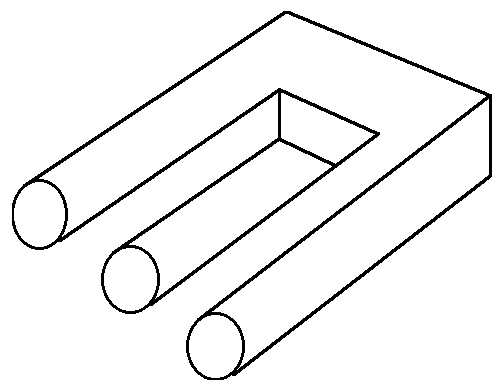
Sometimes in your training you're going to hear contradictory things. Maybe I tell you to do a certain stance one way, and then a few weeks later I tell you to do it a different way, or you go take your promotion test and Sei Shihan Kate tells you something different.
Now, sometimes that's because I was just wrong the first time! It does happen.
Or sometimes there's more than one way to do something. A few weeks ago we went over two different ways to do ushiro mawashi geri, the back spin kick. So if I like one way and another instructor likes a different way, sometimes that's ok, we could both be right.
And sometimes you'll be doing something differently at two different times. So maybe one day I'll tell you to make your jodan uke higher, and another day tell you to not make your jodan uke so high -- maybe it was too low one day and too high the other. Or maybe we're drilling different aspects at different times, so I tell you that you need to kick faster one day, then next week I'm making you do it slowly, to emphasize different parts of the skill.
So there are some logical reasons why you might get contradictory instructions.
But there are also some non-logical reasons why this can happen. Because karate-do isn't always logical. Like any art it ultimately has to go beyond logic.
One day I might tell you, "If you don't succeed, keep trying! Do it again and again and again! Never give up!" And that's true. But I might tell you another day, "If your strategy isn't working, drop it! Do something else! There's no sense in repeating something that's not working." And that's also true, even though they may seem to contradict each other.
Our karate tradition is very connected to Zen and Taoism, which are philosophies with a deep respect for paradox and for getting at truths that are beyond logic. In some schools of Zen, for example, students are told to meditate on koans, impossible questions like "Show me your face before your parents were born," or "We know the sound when two hands clap together, but what is the sound of one hand?" (Yes, I see some of you smart aleks clapping your fingers against your palm of the same hand, but that's not it!)
So when we say "You must put all your effort into each technique, don't hold back!" and then later say "Relax, you're trying too hard and getting in your own way," or say "Every detail must be correct, you must continually polish" and then also "The details don't matter, just have a strong spirit", these are our koans. We have to expand our minds to be big enough to hold both ends of such apparent contradictions.
My friend Jun Shihan Sandy once told students, "All you have to do is a little bit more than you can do." Logically that makes no sense. If you try to set it up mathematically there is no x such that you can reach x and x is also greater than you can reach.
But as poetry of a sort, it resonates, it brings us toward a truth greater than its literal and logical meaning.
The ultimate goal of karate-do is about a certain experience of life. It does not always fit within the limitations of language -- as the Taoist Lao Tzu put it, "The Way that can be spoken of is not the true Way." And the Japanese word "do" is the same as the Chinese "tao", "way"; so we should expect the same to apply to karate-do. In order to point most clearly at the way, sometimes we must use contradiction and paradox.
Illustration of a "blivet", an impossible object, by Wikipedia user Leonard G., CC SA 1.0